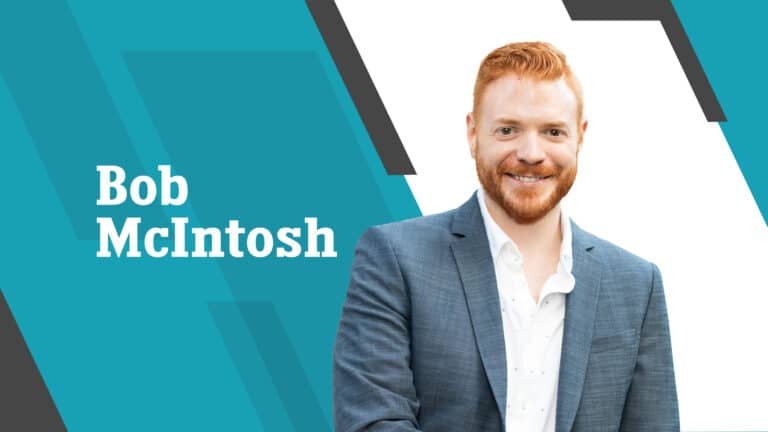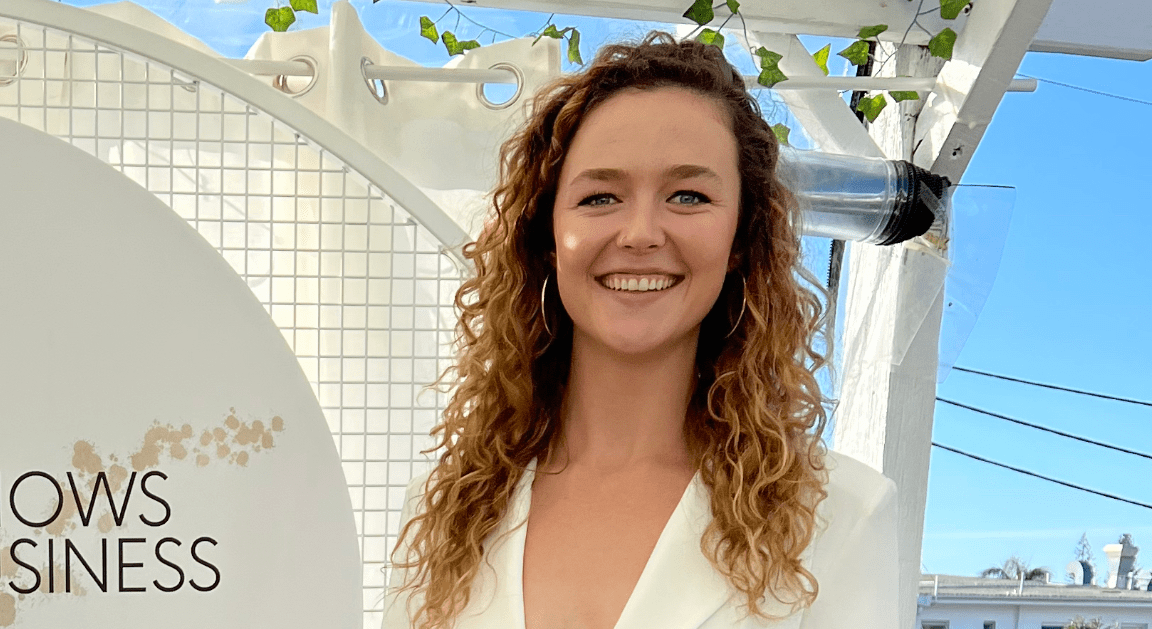Resilient Leadership Insights: Jarek Tadla of People’s Choice Apartments and Not Enoughness
Jarek Tadla is a seasoned real estate investor and a passionate advocate for mental health awareness. With over 30 years of experience in residential and commercial real estate investment, he has cultivated a portfolio spanning thousands of units globally. Originally from Poland, Jarek embarked on his journey to achieve the American Dream, recognizing that every role, from dishwasher to boss, played a pivotal part in his development.
As the owner-operator of Peoples Choice Apartments LLC, Jarek has grown his real estate empire into the largest singularly owned real estate holding company without investor equity in the country. Over the years, he has remediated and renovated countless properties, not only improving financial performance but also enhancing the overall living conditions for his tenants—a challenge Jarek frequently encountered when he immigrated in the 1990s.
Beyond his professional accomplishments, Jarek is a fervent advocate for mental health awareness and support. Having navigated his own demons with depression, he shares his deeply personal journey to inspire hope and resilience. As a man who came from nothing and built a hugely successful company, Jarek struggled to understand how you can have “everything in the world, but still feel alone, unworthy, and miserable.”
Jarek believes mental health is a systematic epidemic that must be addressed more publicly, regardless of social status. A life-altering accident and COVID awakened his passion to write his forthcoming book, Not Enoughness: The Gift and the Curse. Through motivational speaking, workshops, and one-on-one coaching, Jarek is on a mission to create a safe space for individuals to explore their challenges, find solace, and discover their inner strength. His lifelong goal is to help others overcome adversity, foster resilience, and create a community of support.
We are thrilled to have you join us today! Let’s start off with a little introduction. Tell our readers a bit about yourself and your company.
Jarek Tadla: Many people believe that starting a business requires a lot of money. However, my journey in real estate began with resources that I received from friends who believed in and supported me. Sometimes you do not need as much as some may think to start a business. My initial and ongoing resources have always been the people around me, providing both financial support and valuable education when I needed more information.
In 1995, I invested in my first fourplex. I then bought another, and a third, before selling them to purchase larger properties—10 units, then 12, and eventually 17. This progression continued until I was investing in 50 and 100-unit properties. By the age of 28, I had achieved financial stability and felt I no longer needed to work.
However, I soon realized that money was not everything. While it can make life easier, it does not bring true happiness. I went on a journey as I thought I was missing something in life. I traveled the world; I went back to work, but I still felt unfulfilled. Then, on February 11th, 2016, I had a skiing accident that turned my whole life upside down. I had several broken bones and was in and out of the hospital for six months. I had 13 surgeries and a 2-year recovery period.
At 46, I recognized my emotional emptiness. Despite a high IQ, I lacked emotional intelligence. Without fulfillment and purpose, life felt empty. Even with financial success, I became depressed and contemplated suicide three times. I thought I was the only person in the world going through this until I started speaking to my coaches and realized I wasn’t alone.
I began to understand that many who acquire sudden wealth, such as lottery winners, often face depression and suicidal thoughts, which is exactly what I had experienced. This realization motivated me to help others in similar situations. In search of deeper meaning, I began meditating, praying, and seeking answers, marking the beginning of my personal journey.
I started focusing on self-investment, learning from Tony Robbins and attending motivational seminars. I now have life coaches and participate in inner circle groups weekly. Additionally, I work with a personal trainer and a physical therapist multiple times a week to manage stress and inner turmoil.
Today, I feel more fulfilled and believe that everyone needs this sense of fulfillment in their lives.
Can you share a time when your business faced a significant challenge? How did you navigate through it?
Jarek Tadla: In Not Enoughness: The Gift and the Curse, I explore the doubts that plague many entrepreneurs, especially during tough times. My business faced a significant financial setback due to an unexpected market shift, which triggered feelings of inadequacy. To overcome this, I revisited our core mission and focused on adding value where it mattered most, even if it meant scaling back elsewhere. By embracing open communication and collaboration, we not only navigated through the crisis but also emerged stronger. This experience reinforced that true resilience comes from within and that personal growth is key to overcoming business challenges.
How has a failure or apparent failure set you up for later success?
Jarek Tadla: For me, failure often amplifies our sense of inadequacy. Early in my real estate career, I experienced a significant setback when a major development project fell through. It felt like a personal defeat, reinforcing my fears that I wasn’t cut out for the industry. However, that failure turned out to be a pivotal moment. It forced me to confront the limiting beliefs that were holding me back and to reexamine my approach to both business and personal growth. I realized that my focus had been too narrow, and I wasn’t fully aligned with my values or long-term goals.
Instead of giving up, I used the experience to reshape my strategy. I started focusing on building stronger relationships within the industry, understanding market dynamics more deeply, and being more selective about the projects I took on. This shift not only helped me recover from the setback but also led to greater success in the long run. I learned that, in real estate as in life, failures are often the stepping stones to greater achievements, providing the lessons and resilience needed to thrive in a competitive field.
How do you build a resilient team? What qualities do you look for in your team members?
Jarek Tadla: Building a resilient team starts with fostering a culture where vulnerability is seen as a strength. When team members feel safe to express their challenges and uncertainties, it creates an environment that encourages growth and collective problem-solving, essential for navigating adversity.
When selecting team members, I prioritize qualities beyond just technical skills, such as self-awareness, emotional intelligence, and a growth mindset. These attributes indicate a person’s ability to learn from setbacks and keep moving forward. I also intentionally seek out individuals who are strong in areas where I may not be, ensuring a balance that drives innovation and productivity. This diversity of strengths allows us to tackle challenges more effectively and maintain momentum even in difficult times.
This approach was instrumental not just in my real estate business but also in writing my first book, Not Enoughness. I knew I couldn’t do it all alone, so I surrounded myself with a team of professionals—editors, designers, and marketers—who were experts in their fields. Their strengths compensated for my weaknesses and helped elevate the book beyond what I could have achieved on my own. This collaborative effort not only improved the quality of the final product but also made the process more efficient and less overwhelming.
In the unpredictable world of real estate, and in any major project like writing a book, having a team that complements each other’s strengths is crucial. It ensures that we can adapt, innovate, and continue to achieve long-term success, no matter the challenges we face.
How do you maintain your personal resilience during tough times?
Jarek Tadla: Maintaining personal resilience during tough times is something I deeply explore in Not Enoughness. One of the key strategies I rely on is maintaining a consistent routine. In moments of uncertainty or stress, routines provide a sense of stability and control, which is essential for keeping a clear mind and staying focused.
For me, this routine includes daily practices such as morning exercise, setting clear priorities for the day, and dedicating time to reflection or journaling. These habits help ground me, allowing me to start each day with intention and purpose, regardless of the challenges ahead. The discipline of sticking to a routine creates a rhythm that helps me stay balanced and resilient, even when external circumstances are turbulent.
Additionally, I prioritize self-care and time with loved ones, understanding that resilience isn’t just about pushing through difficulties but also about recharging and maintaining emotional well-being. This balance between routine, self-care, and connecting with others keeps me centered and better equipped to face whatever challenges come my way.
In both my personal life and my work, including in the real estate industry, where unpredictability is common, this approach has been vital. By maintaining a routine and focusing on practices that support my well-being, I can navigate tough times with greater clarity, resilience, and strength.
What strategies do you use to manage stress and maintain focus during a crisis?
Jarek Tadla: One of the key strategies I use to manage stress and maintain focus during a crisis is breaking down overwhelming challenges into smaller, manageable tasks. This approach helps me stay focused on what I can control and prevents me from becoming paralyzed by the bigger picture. By tackling one task at a time, I can make steady progress, which reduces stress and keeps me moving forward.
I mentioned this before, but maintaining a consistent routine is extremely helpful, especially in times of crisis. Routine provides a sense of normalcy and stability, helping me stay grounded. I make sure to stick to my daily habits, such as regular exercise, setting clear priorities, and dedicating time to reflection. These practices create a rhythm that keeps me centered, even when everything around me feels chaotic.
I also prioritize self-care, recognizing that stress management isn’t just about working harder but also about ensuring I’m mentally and physically fit to handle the challenges. This means taking breaks when needed, staying connected with supportive people, and finding moments of calm amidst the storm.
Lastly, I focus on maintaining a positive mindset. I remind myself that crises are temporary and that every challenge is an opportunity to learn and grow. By keeping this perspective, I can stay resilient and maintain clarity, even in the most difficult situations.
In both my real estate business and personal life, these strategies have been essential for navigating crises with a clear mind and a steady hand. They allow me to manage stress effectively and maintain the focus needed to overcome obstacles and keep moving forward.
How do you communicate with your team during a crisis?
Jarek Tadla: In my book Not Enoughness, I emphasize the power of transparent and empathetic communication. This is particularly important when facing tough times. I make it a priority to communicate openly with my team. This means sharing the reality of the situation without sugarcoating it while also offering reassurance that we’re tackling the challenges together.
I believe in the importance of being both a leader and a listener. I regularly check in with each team member to understand their concerns and perspectives, making sure they feel heard and valued. This two-way communication not only helps me gauge the team’s morale but also allows us to address issues proactively.
During a crisis, I also focus on clarity and consistency in messaging. I ensure that everyone is on the same page regarding our goals, strategies, and any changes in direction. By keeping communication clear and consistent, I help the team stay focused and aligned, even when things are uncertain.
Additionally, I encourage collaboration and problem-solving within the team. I trust my team members’ expertise and involve them in decision-making processes, which not only fosters a sense of ownership but also brings diverse ideas to the table. This collaborative approach often leads to more innovative solutions and strengthens our collective resilience.
Overall, my approach to communication during a crisis is rooted in honesty, empathy, and collaboration. By maintaining open lines of communication and supporting my team through challenges, we can navigate crises more effectively and emerge stronger on the other side.
What advice would you give to other CEOs on building resilience in their organizations?
Jarek Tadla: My advice to CEOs on building resilience in their organizations is to foster a culture of openness and adaptability. Encourage your team to see challenges as opportunities for growth and to communicate transparently about setbacks. Support and involve your team in problem-solving, ensuring they feel valued and heard. Lead by example by staying calm and focused under pressure, as your team will mirror your resilience. Additionally, prioritize continuous learning to help your organization adapt to change effectively. Finally, emphasize the importance of routine and self-care. Resilience isn’t just about enduring tough times but maintaining the energy needed for long-term success. By embedding these principles, you’ll build a resilient organization that can thrive through facing any challenge.
How do you prepare your business for potential future crises?
Jarek Tadla: Preparing my real estate business for potential future crises involves proactive planning, financial prudence, and adaptability. First, I ensure that we have clear and flexible strategies in place for our properties. This includes scenario planning for various market downturns, regulatory changes, or unexpected events like natural disasters. By anticipating these situations and developing contingency plans, we can respond swiftly and effectively when challenges arise.
Financial resilience is another key focus. In real estate, maintaining strong cash reserves and diversifying our portfolio across different property types and locations helps mitigate risk. This financial stability gives us the flexibility to weather downturns and capitalize on new opportunities, even during uncertain times.
Building a resilient team is equally important. I invest in ongoing training and development for our property managers and staff, ensuring they are well-equipped to handle emergencies and adapt to changing market conditions. Open communication is critical—I keep the team informed and encourage collaboration, so we can collectively problem-solve when issues arise.
Additionally, I prioritize investments in technology and efficient processes. Whether leveraging property management software to streamline operations or using data analytics to make informed decisions, having the right tools in place allows us to pivot quickly and manage properties more effectively during crises.
Lastly, I make it a point to learn from past challenges in the real estate industry. Each crisis offers insights that we can use to refine our strategies and improve our preparedness for the future. By focusing on these areas, I aim to build a real estate business that is not only resilient but also capable of thriving, regardless of the challenges that come our way.
What’s the most important lesson you’ve learned about leadership in times of crisis?
Jarek Tadla: The most important lesson I’ve learned about leadership in times of crisis is the value of steady, transparent communication. In Not Enoughness, I share that during tough times, a leader’s ability to maintain calm and provide clear direction is crucial. When uncertainty looms, your team looks to you for stability and guidance. Being transparent about the challenges you’re facing, while also communicating a clear plan for moving forward, helps to build trust and keeps everyone aligned.
I’ve learned that leading with empathy is essential. Understanding the concerns and emotions of your team members, and addressing them openly, not only strengthens morale but also fosters a sense of unity and resilience. People are more likely to stay focused and committed when they feel supported and valued.
Ultimately, leadership in a crisis isn’t just about making tough decisions; it’s about being a steady presence for your team, guiding them through uncertainty with clear, compassionate, and consistent communication. This approach not only helps navigate the immediate crisis but also builds a stronger, more cohesive team for the future.
Jed Morley, VIP Contributor to WealthDefined and the host of this interview would like to thank Jarek Tadla for taking the time to do this interview and share his knowledge and experience with our readers.
If you would like to get in touch with Jarek Tadla or his company, you can do it through his – Linkedin Page







